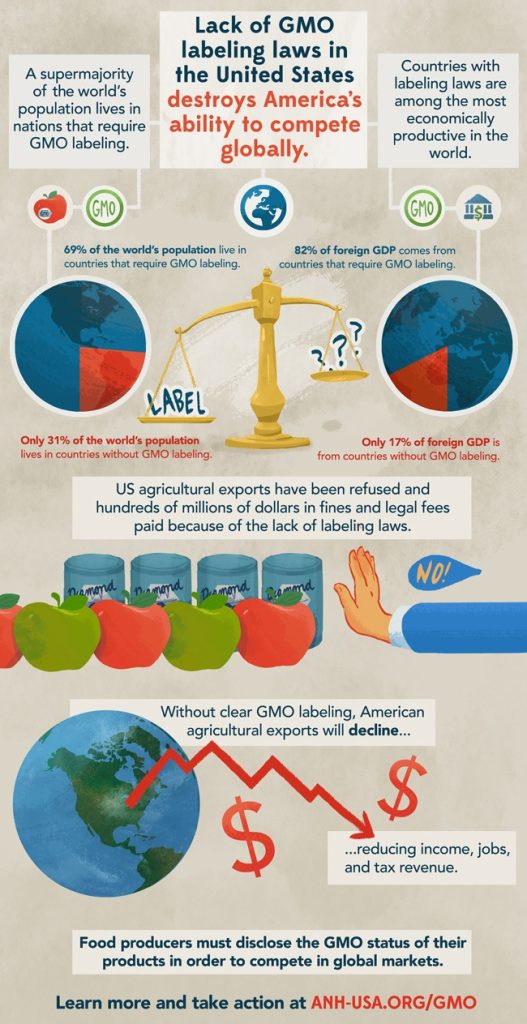Is it Round Up pesticides and/or GMO grain? Here may be one piece of the puzzle.
We believe it is a combination of the two. When you go to Europe, where GMO is banned and Glyphosate as a herbicide is used much less, do you get gluten problems? Most say no.
‘I Can’t Tolerate Gluten In The U.S., But I Can In Europe’: Experts Unpack The Phenomenon
Many people who are sensitive to gluten claim they can eat all the bread and pasta they want when traveling abroad. How could this be true?
“I ate pasta every day on my trip to Italy, but I can’t eat it at all when I’m at home.”
“I can eat all the bread I want in France, but it makes me so bloated in the U.S.”
You’ve probably heard a friend say these things, or maybe you’ve experienced it yourself. Essentially the story goes like this: Someone who usually adheres to a gluten-free or low-gluten diet says eating items with gluten while at home in the U.S. causes bloating, abdominal pain and an upset stomach, but they can load up on the carbs while traveling in Europe without any symptoms.
Many believe this is because wheat grown in the U.S. has a higher gluten content, and that more herbicides are used in the production of wheat in the U.S.
“I ate pasta every day on my trip to Italy, but I can’t eat it at all when I’m at home.”
“I can eat all the bread I want in France, but it makes me so bloated in the U.S.”
You’ve probably heard a friend say these things, or maybe you’ve experienced it yourself. Essentially the story goes like this: Someone who usually adheres to a gluten-free or low-gluten diet says eating items with gluten while at home in the U.S. causes bloating, abdominal pain and an upset stomach, but they can load up on the carbs while traveling in Europe without any symptoms.
Many believe this is because wheat grown in the U.S. has a higher gluten content, and that more herbicides are used in the production of wheat in the U.S.
About 1% of the U.S. population — though experts say the number is actually much higher — has celiac disease, which is an autoimmune disease that causes damage to the small intestines when someone eats gluten. For people with the disease, consuming gluten can cause malnutrition, infertility and an increased risk of thyroid disease and other conditions.
“No one who has been diagnosed with celiac disease by a medical provider should eat gluten in any form, from anywhere,” Baker said. So, if you have the disease, avoid gluten at all costs, even when you’re traveling.
Not everyone who has problems with gluten has celiac disease, though. Non-celiac gluten sensitivity (NCGS) causes symptoms similar to celiac disease — including bloating, diarrhea, fatigue, headaches and a skin rash — but eating gluten doesn’t harm the intestines. Research also suggests that the symptoms of some people who suspect they have NCGS might not actually be caused by gluten.
People with NCGS should avoid gluten while abroad, but it’s ultimately up to the individual, Baker said. “Even with gluten sensitivity, while on vacation may not be the best time to test this theory, as being ill in your hotel room is probably not how you imagined your holiday.”
Chemicals may be more to blame than gluten
The digestibility of bread and other wheat products might not be related to gluten at all.
“Gluten-containing foods in the United States also can contain higher levels of chemicals — herbicides, additives and preservatives — that can interfere with gut health and increase overall inflammation in the body compared to their European counterparts,” Meyer-Jax said.
Glyphosate is an herbicide that’s used on wheat and other products, and some scientists believe it’s potentially connected to increased reports of wheat products causing health issues. One study found that “fish exposed to glyphosate develop digestive problems that are reminiscent of celiac disease.”
The World Health Organization has classified glyphosate as “probably carcinogenic to humans,” but the herbicide (the main ingredient in the weed killer Roundup) is widely used in the U.S. It’s also used in Europe —though to a lesser degree than in the U.S. But, many suspect the European Union might ban the herbicide soon. Europe also imports wheat from around the world, which has likely been grown with glyphosate.
Read entire article here: https://www.huffpost.com/entry/eat-gluten-europe-us_l_63514ef1e4b04cf8f380beda






Recent Comments